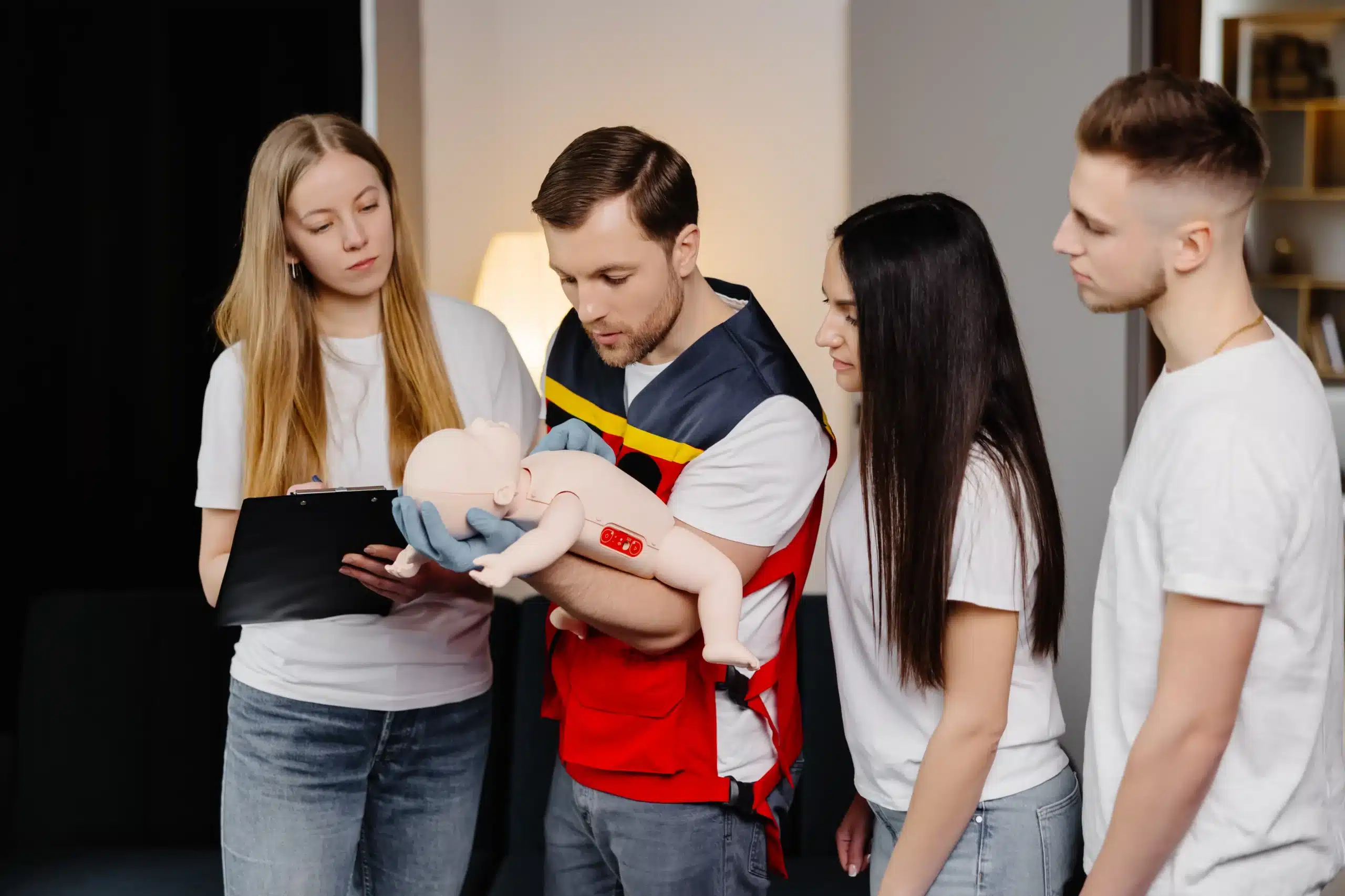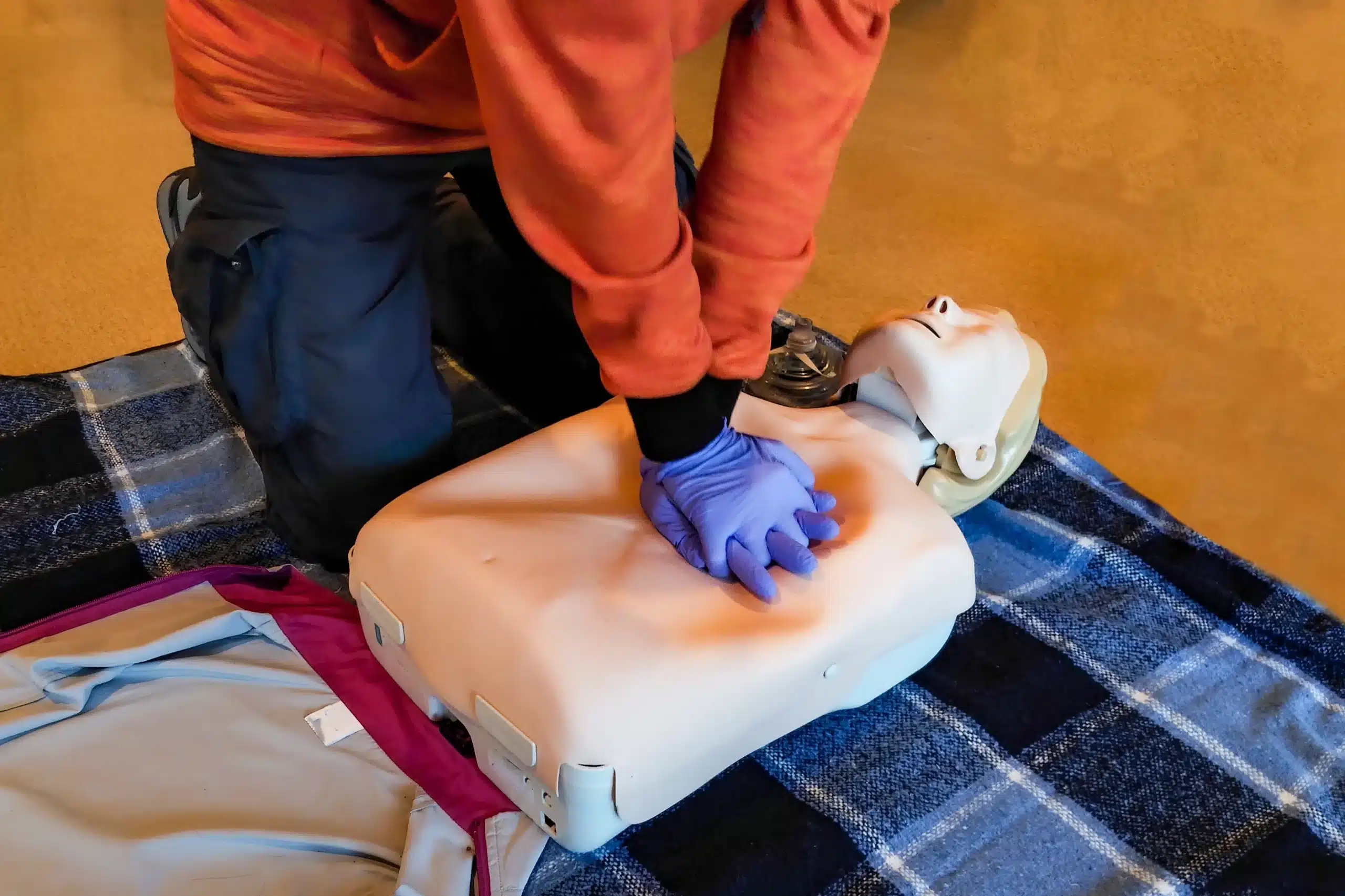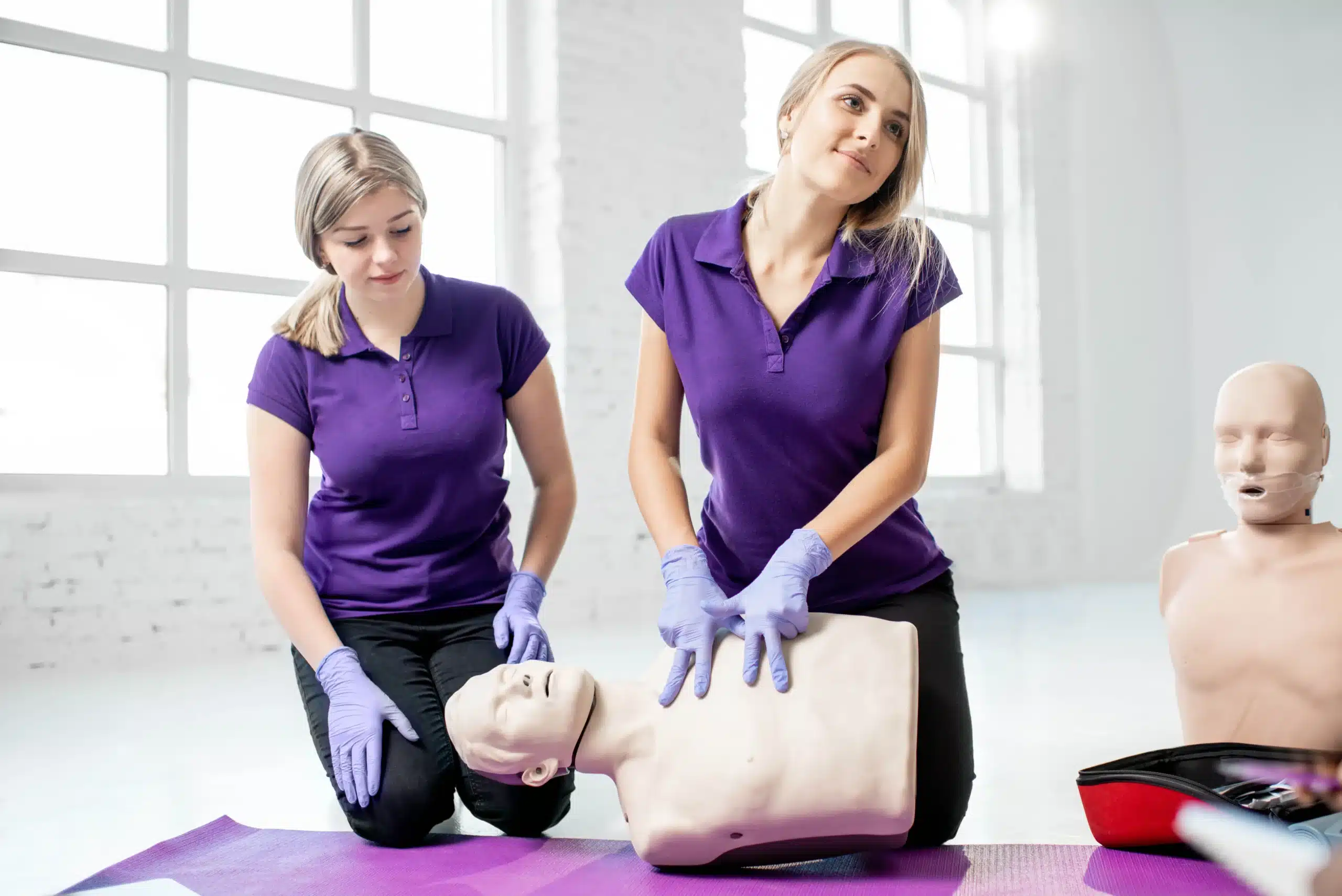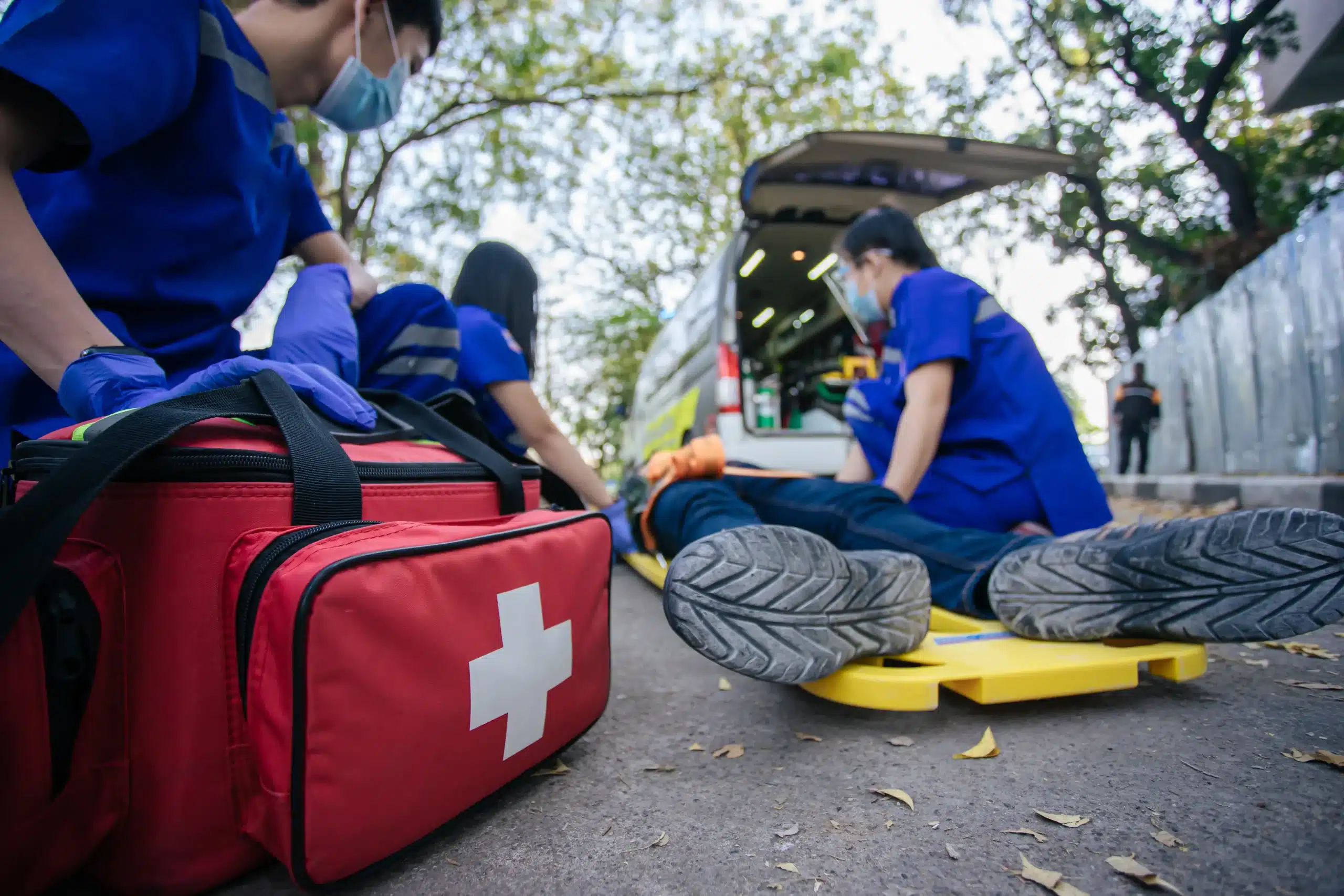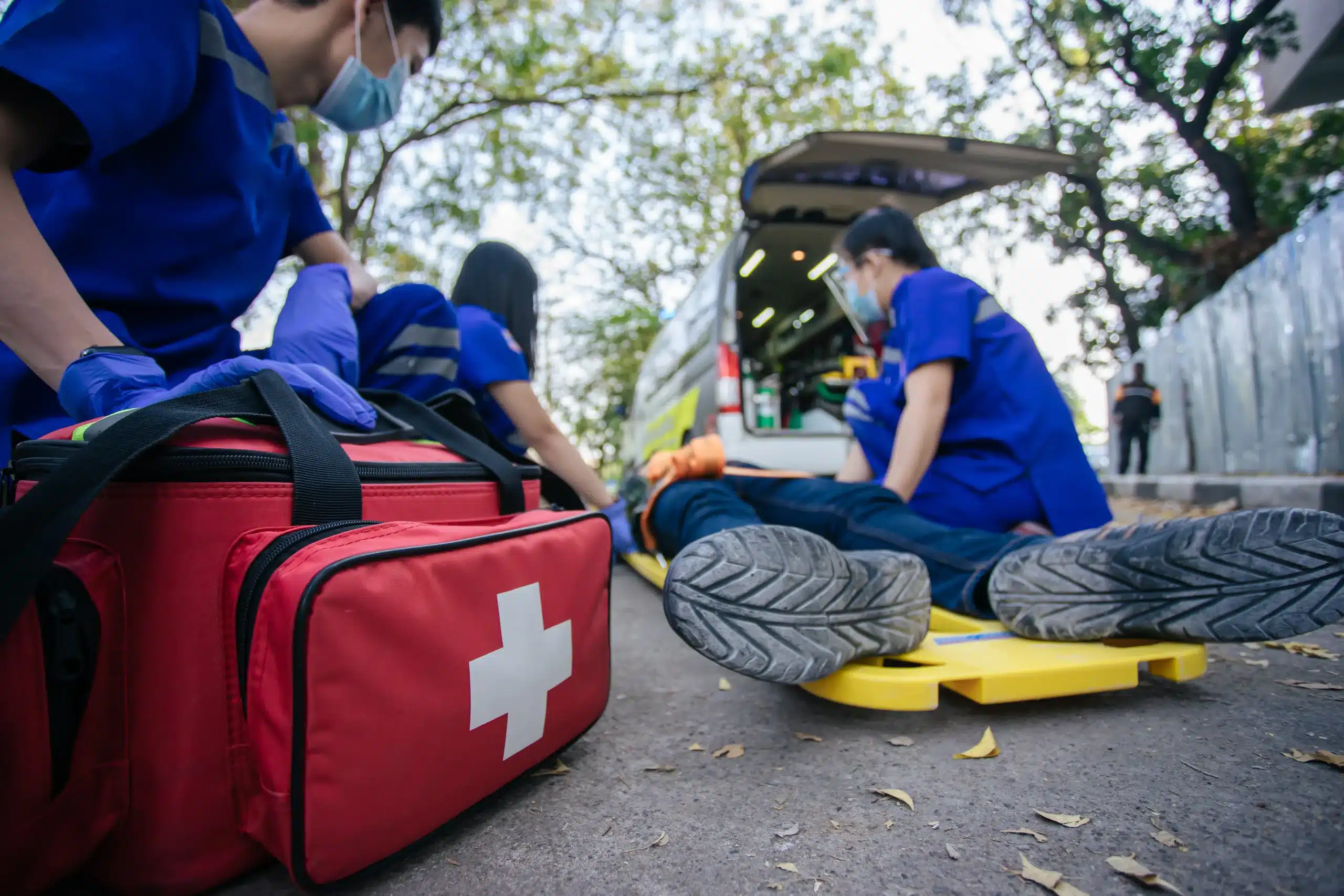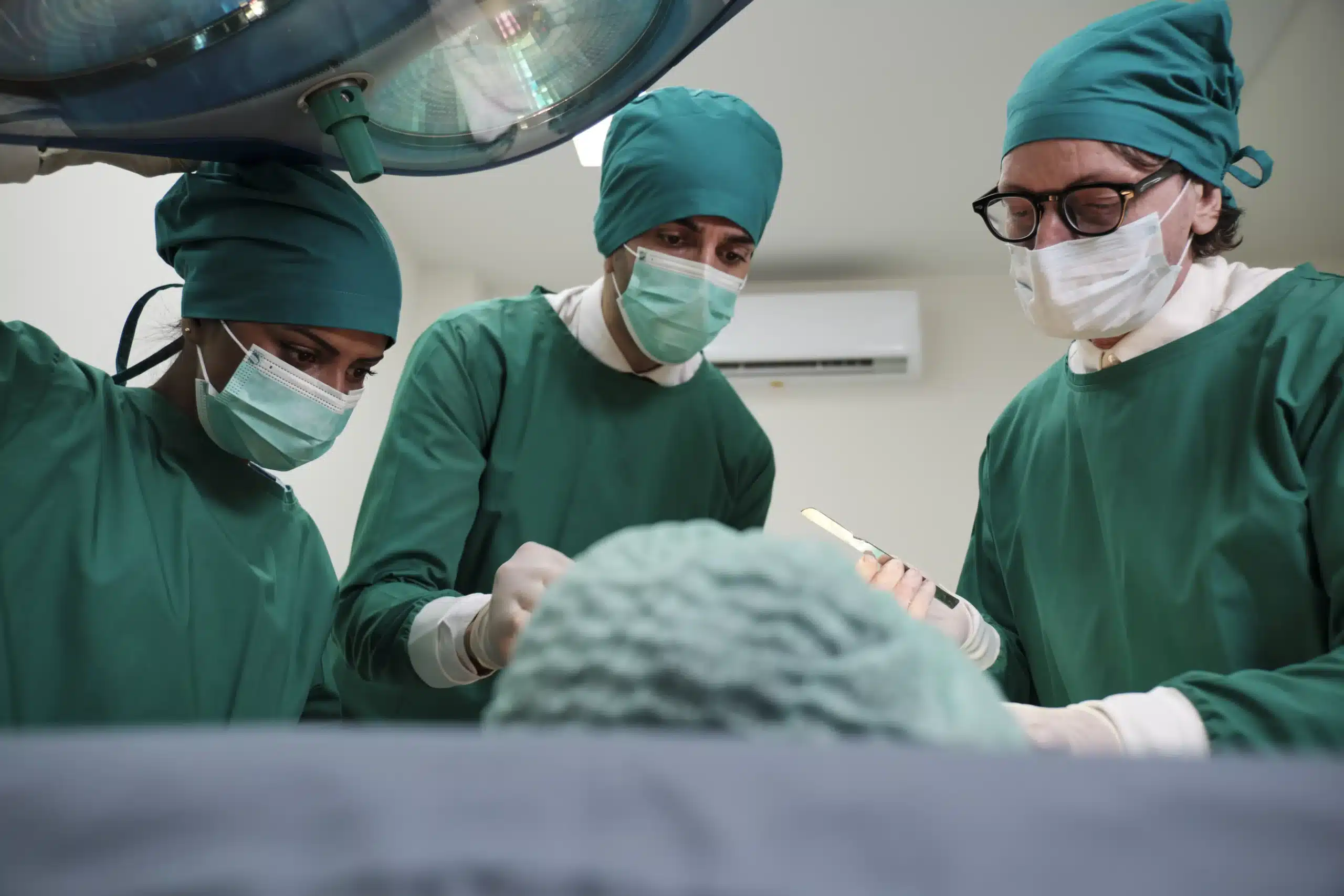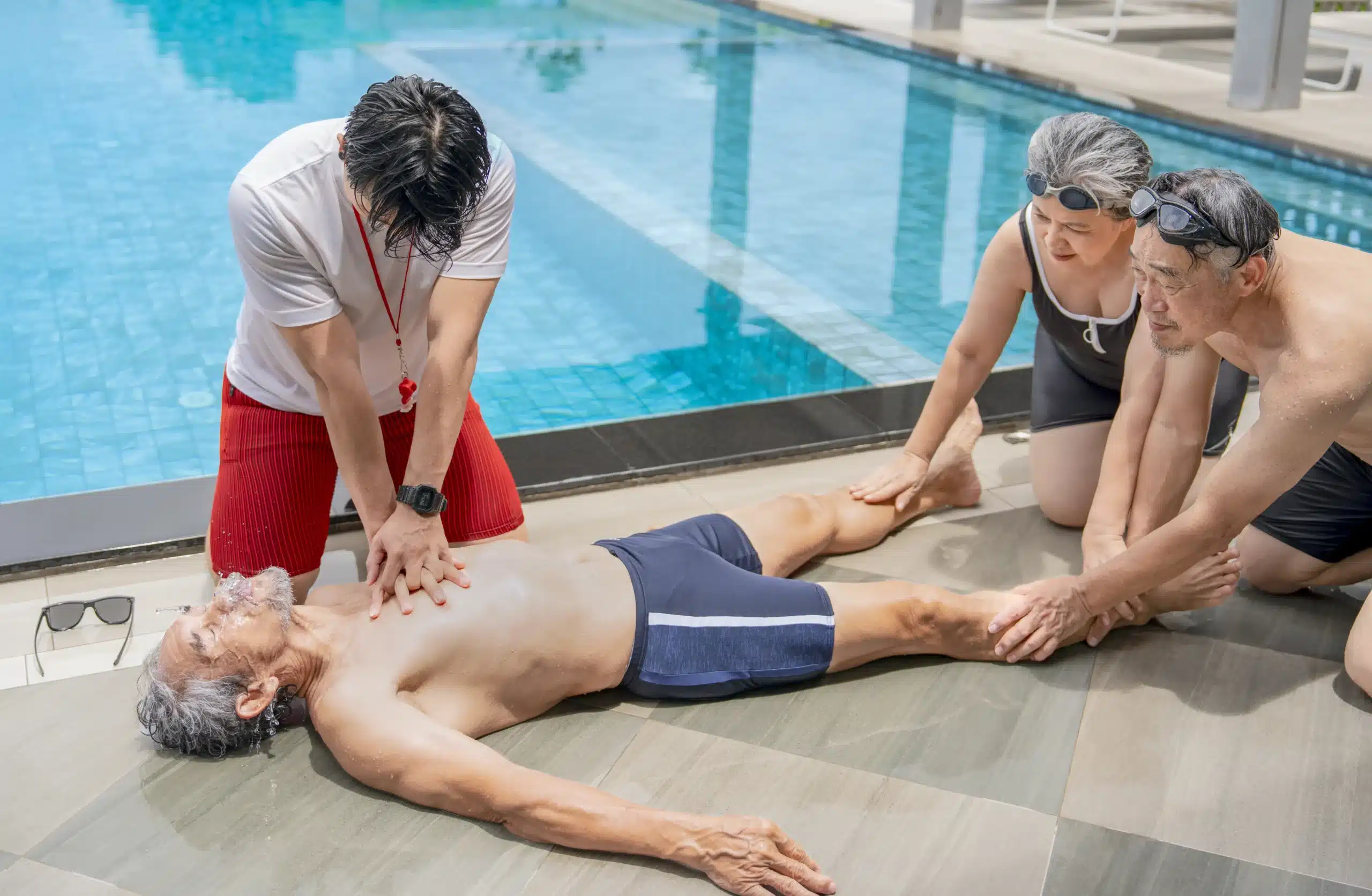Working in healthcare demands continuous learning and a commitment to providing the best possible patient care. If you’re a healthcare provider in San Jose, mastering advanced cardiac life support (ACLS) is essential for navigating complex cardiovascular emergencies. This article serves as your comprehensive guide to ACLS, covering everything from its core components and benefits to finding the right certification course in San Jose. We’ll address common misconceptions, explore key skills you’ll gain, and offer practical advice for preparing for the certification exam. Whether you’re looking to enhance your skills, advance your career, or simply gain more confidence in emergency situations, this guide will help you understand the importance of advanced cardiac life support in San Jose and how it can empower you to make a real difference in the lives of your patients.
Key Takeaways
- ACLS is a comprehensive approach to cardiovascular emergencies: Going beyond basic CPR, ACLS training equips healthcare providers with advanced skills like ECG interpretation, medication administration, and airway management, ultimately leading to better patient outcomes.
- Choosing the right ACLS course is crucial for effective learning: Consider factors such as hands-on practice opportunities, instructor experience, flexible scheduling, and competitive pricing when selecting a provider like Santa Clara CPR Classes.
- ACLS certification enhances your career and empowers you in emergencies: This valuable credential demonstrates your commitment to advanced life support, opening doors to career advancement and boosting your confidence in critical situations.
What is Advanced Cardiac Life Support (ACLS)?
Advanced Cardiac Life Support (ACLS) is an advanced, evidence-based resuscitation protocol. It builds upon the foundational skills of Basic Life Support (BLS) with a greater emphasis on teamwork and high performance during a cardiovascular emergency. ACLS focuses on the importance of continuous, high-quality CPR and incorporates advanced interventions, including medication administration, airway management, and ECG interpretation. These skills are critical for healthcare professionals responding to life-threatening cardiac events like heart attacks, strokes, and respiratory emergencies.
What is ACLS and Why is it Important?
ACLS provides healthcare providers with a structured approach to managing life-threatening cardiovascular situations. It emphasizes early recognition and intervention, aiming to improve patient outcomes and survival rates. The standardized protocols ensure consistent, high-quality care across different healthcare settings. This is crucial for effective teamwork during emergencies, allowing professionals from various disciplines to work together seamlessly. ACLS certification demonstrates a commitment to maintaining these essential skills, reassuring both patients and colleagues of your expertise. For more information on common misconceptions surrounding ACLS, check out this helpful article by Cascade Training.
Who Needs ACLS?
While often associated with physicians, ACLS certification benefits a broad spectrum of healthcare providers. Nurses, paramedics, respiratory therapists, and other professionals involved in emergency or critical care situations can enhance their skills through ACLS training. It’s not limited to hospital settings; professionals working in outpatient clinics, urgent care centers, or even on ambulances can find ACLS invaluable. Anyone who might be the first responder in a cardiac emergency should consider pursuing ACLS certification. This includes individuals working in roles such as summer camp counselors, personal trainers, and other professions where having advanced life support skills can be beneficial.
Key Skills and Knowledge Gained
ACLS courses equip healthcare providers with essential skills, from quickly assessing a patient’s condition and interpreting ECG rhythms to administering medications and managing airways effectively. Beyond technical skills, ACLS emphasizes critical thinking and decision-making under pressure. This includes understanding the algorithms for different cardiac emergencies and adapting them to individual patient needs. Cascade Training highlights the value of these skills for nurses, particularly in critical care and emergency departments. These skills are equally valuable for other healthcare professionals who encounter cardiac emergencies.
Common ACLS Misconceptions
One common misconception is that ACLS certification is permanent. Recertification is required every two years to ensure providers stay current with the latest guidelines and best practices. You can learn more about these requirements through resources like this article on common ACLS misconceptions. Another misconception is that ACLS is simply an advanced form of CPR. While CPR is vital, ACLS encompasses a much broader scope of interventions, including advanced airway management, pharmacological therapies, and electrical therapies. Cascade Training offers further clarification in their guide for medical professionals. Understanding these distinctions is key to appreciating the comprehensive nature of ACLS and its importance in advanced life support.
Find Top ACLS Certification Providers in San Jose
Finding the right ACLS certification course can feel overwhelming with so many options. This breakdown of reputable providers in San Jose will help you get started.
American Heart Association (AHA)
The American Heart Association (AHA) sets the standard for cardiovascular care. Their ACLS certification courses are essential for healthcare professionals looking to refine their skills in managing cardiac emergencies and improving patient outcomes. The AHA provides the resources and guidelines that many training centers use in their programs.
Santa Clara CPR Classes
Santa Clara CPR Classes offers convenient, high-quality ACLS training in the San Jose area. They are AHA-certified and known for flexible scheduling and a low price guarantee. Their courses cover essential skills and knowledge for effective emergency response. They also offer other certifications like BLS and RQI. Contact them to learn more.
CPR Training Center
The CPR Training Center in San Jose focuses on AHA ACLS certification renewals. Their comprehensive courses typically run for about six hours and include hands-on training to prepare participants for real-life emergencies. This focused approach makes them a good option for refreshing ACLS skills and maintaining certification.
Other Local Training Centers
You’ll find several other local training centers offering AHA-certified ACLS courses. Bay Area CPR, for example, provides various CPR and ACLS classes tailored to healthcare professionals around San Jose. A quick search for “ACLS certification near me” can also uncover additional options in your neighborhood.
Learn ACLS Class Structure and Requirements
Understanding the ACLS class structure and requirements will help you choose the best learning format for your needs. Whether you’re a busy professional or prefer a traditional classroom setting, there are options available to fit your schedule and learning style. Let’s break down what to expect.
Course duration and formats (in-person, online, hybrid)
ACLS courses typically involve a combination of online learning and in-person skills practice. The initial ACLS class is a 12-hour course designed for healthcare providers new to ACLS or those needing recertification. This comprehensive course covers essential life-saving skills and knowledge. For those seeking a flexible option, a blended learning format is available, combining online HeartCode ACLS training with an in-person skills session. Many providers offer daily classes, including weekends, often running from 8 am to 10 pm, with online components available for added convenience. Santa Clara CPR Classes offers a variety of scheduling options.
Prerequisites and materials
Before starting your ACLS class, you’ll need to complete some pre-course work. This typically involves online study materials provided through the American Heart Association (AHA) website. You’ll also need the ACLS Provider Manual, which you can either bring with you or purchase from the training center. These materials provide the foundational knowledge necessary for the course.
Hands-on practice and simulations
ACLS training goes beyond textbooks and lectures. The emphasis is on hands-on learning, providing a practical and engaging experience. You’ll participate in simulated scenarios designed to mimic real-life emergencies. These simulations help you develop critical thinking skills and build confidence in your ability to respond effectively under pressure.
Get Certified and Renew Certification
Upon successful completion of the ACLS course, you’ll receive your certification the same day. This certification is valid for two years. While ACLS certification doesn’t expire completely, recertification is essential to stay current with the latest advancements in ACLS care. It’s generally recommended to recertify within 30 days of your certification’s expiration date. Medtigo clarifies some common misconceptions about ACLS certification.
Prepare for ACLS Certification
Getting ready for ACLS certification involves more than just showing up for class. Preparation is key, and finding study methods that work for you is crucial. Some people thrive with flashcards, while others prefer practice tests or video tutorials. Experiment to see what clicks. The ACLS Provider Manual offers a solid foundation for structuring your study sessions. A study schedule can also help you stay organized and manage your time. Online resources, like practice exams and interactive modules, can reinforce concepts and pinpoint areas needing extra attention.
Study resources and techniques
Think about how you learn best. Do you prefer hands-on activities, visual aids, or reading and note-taking? Understanding your learning style helps tailor your study approach. Flashcards are great for memorizing key algorithms and drug dosages. Use online resources like quizzes and practice tests to check your understanding. Many providers offer invaluable practice scenarios and simulations to apply your knowledge in realistic settings. And don’t forget the ACLS Provider Manual—it’s a comprehensive guide covering all course topics.
Overcome common challenges
One common hurdle is the hands-on skills assessment. While online courses are convenient for learning the theory behind ACLS, most certifications require an in-person skills check. Make sure your chosen course includes this component. Another challenge is managing test anxiety. Even with thorough preparation, nerves can interfere. Practice tests can familiarize you with the exam format and reduce anxiety. Remember, the goal is to apply your knowledge and skills to real-life scenarios, so focus on understanding the concepts rather than rote memorization.
Manage test anxiety
Feeling anxious before a big test is normal. Thorough preparation is one of the best ways to manage those nerves. Familiarize yourself with the ACLS algorithms and practice applying them to various case scenarios. This builds confidence and helps you think critically during the exam. If you feel overwhelmed, take deep breaths and remind yourself of your preparation. Visualize yourself successfully completing the exam and focus on the positive outcomes of becoming ACLS certified.
The importance of ongoing education
ACLS certification isn’t a one-time event. Medical knowledge and best practices constantly evolve. Regularly reviewing updated guidelines and participating in continuing education keeps your skills sharp and ensures you provide the best possible care. Recertification, typically required every two years, offers a structured opportunity to refresh your knowledge and stay current with advancements in ACLS. This commitment to ongoing learning demonstrates your dedication to high-quality patient care. Staying up-to-date also benefits your career, keeping you competitive and informed in the ever-changing healthcare field. Consider exploring resources like Category 1 AMA Credits to maintain your certification and broaden your knowledge.
Choose the Right ACLS Class in San Jose
So you’re ready to sign up for ACLS certification. Excellent! Now, let’s make sure you find the perfect class in San Jose for your needs.
Factors to consider when choosing a provider
When choosing an ACLS provider, prioritize a hands-on, engaging learning experience. Effective ACLS training goes beyond lectures and textbooks. Look for courses that emphasize hands-on practice and simulations. This active learning approach can significantly improve your understanding and retention of the material, boosting your confidence in real-life emergencies. Consider the instructor’s experience and teaching style, too. A dynamic and supportive instructor can make all the difference in your learning journey. Santa Clara CPR Classes offers courses taught by experienced professionals committed to student success.
Compare costs and schedules
Cost is a significant factor when choosing an ACLS class. Compare prices from different providers, but don’t let cost be your only deciding factor. A lower price doesn’t always mean lower quality. Consider the value you’re getting for your money. Does the course include all necessary materials? Are there any hidden fees? Santa Clara CPR Classes offers a Low Price Guarantee, ensuring you receive high-quality training at a competitive price. Also, think about the class schedule. Do you need a weekend course, an evening class, or a weekday option? Choose a schedule that fits your lifestyle and allows you to fully focus on your training. Review our convenient class schedules to find the best fit.
Group rates and discounts
If you’re enrolling with colleagues or friends, explore group discounts. Many providers offer reduced rates for groups, making it more affordable for everyone. Ask about group rates and any special promotions that might be available. This can be a great way to save money and learn alongside your peers. Contact us to learn more about group discounts at Santa Clara CPR Classes.
Unique features of local providers
Local providers often offer unique advantages. For example, they may provide additional certifications, specialized courses, or flexible scheduling options tailored to the local community. Some providers also offer RQI classes, a streamlined and efficient way for healthcare professionals to renew their certifications. Research local providers to see what sets them apart and if their offerings align with your specific needs and career goals. Santa Clara CPR Classes has been serving the community since 1989, demonstrating a long-standing commitment to providing high-quality training and excellent customer service. We offer a range of American Heart Association certification courses, including BLS, PALS, and First Aid, in addition to ACLS.
Discover the Benefits of ACLS Training
Earning your ACLS certification is more than just checking a box; it’s a commitment to providing the highest quality of patient care during cardiovascular emergencies. Whether you’re a seasoned healthcare professional or just starting your career, ACLS training offers a range of benefits that can significantly impact your professional life and the lives of your patients.
Improve Patient Outcomes
ACLS certification equips healthcare providers with the skills to rapidly assess and manage patients experiencing cardiac arrest, stroke, or other life-threatening cardiovascular events. This training emphasizes critical thinking and quick decision-making under pressure, directly contributing to improved patient outcomes. Learn more about the impact of ACLS training on patient care. Studies show that effective ACLS intervention can significantly increase the chances of survival and minimize long-term complications.
Improve Team Coordination
Effective teamwork is crucial during medical emergencies. ACLS training emphasizes clear communication and coordinated roles within a resuscitation team. Through realistic simulations and practice scenarios, healthcare professionals learn to work seamlessly together, ensuring efficient and effective responses during critical situations. This focus on teamwork improves patient care and fosters a stronger sense of collaboration among team members.
Advance Your Career
ACLS certification is often a prerequisite for advanced positions in healthcare, particularly in critical care and emergency medicine. Holding this credential demonstrates your commitment to professional development and can open doors to new career opportunities. Many employers prioritize ACLS-certified professionals when filling specialized roles or leadership positions, making it a valuable asset in a competitive job market.
Increase Confidence in Emergencies
Facing a life-threatening medical emergency can be incredibly stressful. ACLS training provides the knowledge, skills, and practice necessary to feel prepared and confident in these high-pressure situations. This confidence translates to more decisive action, improved communication, and ultimately, better patient care. Explore how ACLS training builds confidence in healthcare professionals.
Stay Current with Guidelines and Protocols
Medical guidelines and best practices are constantly evolving. ACLS certification ensures that healthcare professionals stay up-to-date with the latest recommendations for managing cardiovascular emergencies. Regular renewal requires ongoing education, reinforcing your knowledge and keeping you informed of any changes in protocols. This commitment to staying current is essential for providing optimal patient care. Learn more about common misconceptions surrounding ACLS.
Related Articles
- ACLS HeartCode Santa Clara: Your Certification Guide – Santa Clara CPR Classes
- ACLS HeartCode in San Jose: Costs, Schedules & Locations – Santa Clara CPR Classes
- ACLS Renewal San Jose: Your Complete Guide – Santa Clara CPR Classes
- ACLS Courses in Milpitas: Your Complete Guide – Santa Clara CPR Classes
- AHA ACLS Classes in Santa Clara, CA – Santa Clara CPR Classes
Frequently Asked Questions
Do I really need ACLS certification if I’m not a doctor?
Absolutely! While doctors certainly benefit from ACLS, it’s incredibly valuable for many other healthcare professionals, too. Nurses, paramedics, respiratory therapists, and anyone involved in emergency or critical care situations will find ACLS essential. Even professionals in outpatient settings or those who might be the first responder in a cardiac emergency, like personal trainers or summer camp counselors, can benefit from the advanced skills ACLS provides.
What’s the difference between BLS and ACLS?
BLS (Basic Life Support) focuses on immediate life-saving techniques like CPR, using an AED, and relieving choking. ACLS (Advanced Cardiac Life Support) builds upon those BLS skills and adds advanced techniques such as ECG interpretation, medication administration, and advanced airway management. Think of BLS as the foundation and ACLS as the next level of expertise.
How long does ACLS certification last, and how do I renew it?
ACLS certification is valid for two years. To renew, you’ll need to take a recertification course before your current certification expires. This ensures you stay up-to-date with the latest guidelines and maintain your skills. It’s a good idea to start looking into renewal options about a month or so before your certification expires to avoid any gaps in your credentials.
What if I get nervous during the skills testing portion of the course?
It’s completely normal to feel some test anxiety. The best way to combat those nerves is through thorough preparation. Practice the skills and scenarios beforehand, and visualize yourself successfully completing the test. Remember, the instructors are there to support you. Focus on what you’ve learned and trust in your abilities.
How can I find an ACLS course that fits my schedule and budget?
Many providers offer various course formats and schedules, including evenings, weekends, and online options. When comparing costs, consider the overall value, including materials and instructor experience. Don’t hesitate to contact providers directly to discuss your needs and ask about potential discounts or group rates. Finding the right fit is key to a successful learning experience.
